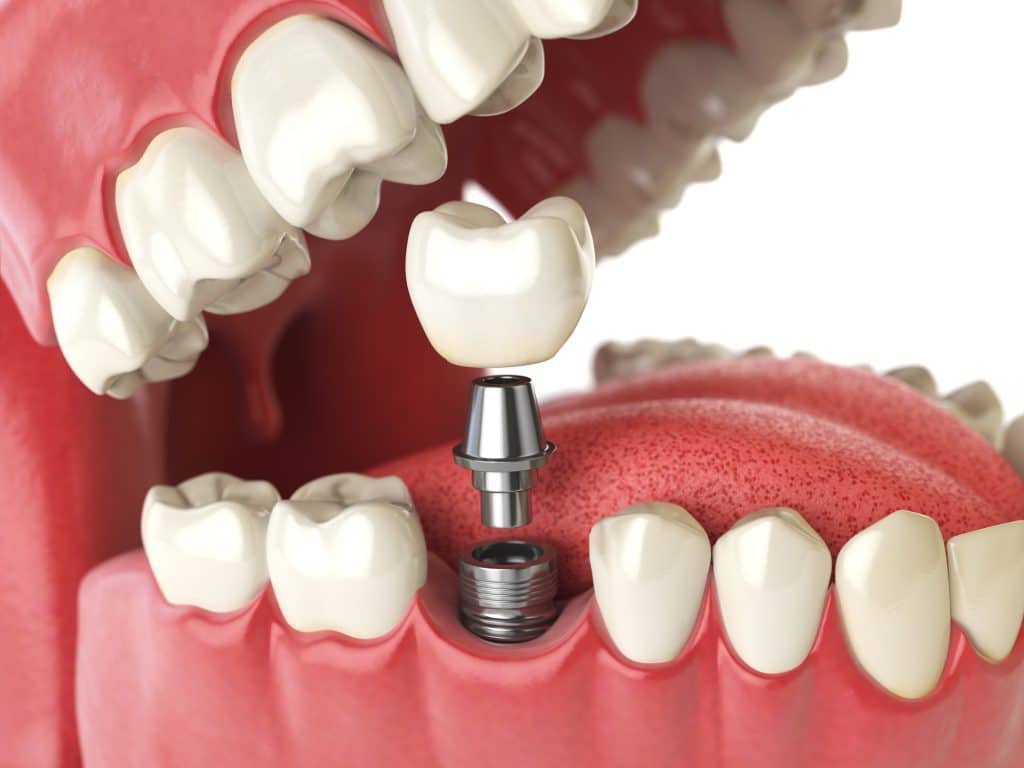5 Common Questions About Healing After a Dental Implant

Dental implants have become one of the most reliable and natural-looking ways to restore missing teeth. Still, many patients feel unsure about what to expect after surgery, particularly when it comes to healing. We understand that recovery is just as important as the procedure itself—after all, it’s the foundation for long-term success.
At Venice Comprehensive Dentistry, we take pride in guiding our patients through every stage of the process, from consultation to full recovery. In this blog, we’ll answer five of the most common questions about healing after a dental implant so you feel more confident about what lies ahead.
1. How Long Does It Take to Heal After a Dental Implant?
Healing after a dental implant is a gradual process. Most patients find the initial discomfort improves significantly within a week, allowing them to return to normal activities. However, the deeper healing—known as osseointegration—takes longer. This is when the implant fuses securely with the jawbone, typically over three to six months.
The exact timeline depends on factors like bone health, age, and whether additional procedures such as bone grafting were performed. While this may sound lengthy, most patients are able to enjoy a normal diet and routine during this time, with only occasional checkups to monitor progress.
2. How Much Pain or Discomfort Should I Expect?
It’s normal to feel some swelling, soreness, or mild bruising after surgery. Fortunately, discomfort is usually well-managed with over-the-counter pain relievers or prescribed medications if needed. Most patients describe the sensation as similar to a tooth extraction rather than intense pain.
The worst of the discomfort typically subsides within a few days. Applying a cold compress, resting, and sticking to soft foods can all make the recovery period more comfortable. If pain worsens or lingers beyond a week, it’s important to reach out to your dentist to rule out complications.
3. What Can I Eat During Recovery?
Your diet plays a big role in healing. For the first few days, we recommend sticking to soft foods like yogurt, applesauce, smoothies, and mashed potatoes. Avoid hot, crunchy, or spicy foods that could irritate the surgical site.
As your mouth heals, you can slowly reintroduce more solid foods, usually within a week or two. By the time osseointegration is complete, most patients return to enjoying their favorite meals with confidence. The stability of implants is one of the reasons they’ve become such a popular option in reconstructive dentistry.
4. How Do I Care for My Implant During Healing?
Caring for your implant properly during healing is essential. You should continue brushing and flossing, but be gentle around the surgical area for the first week. Using an antibacterial mouth rinse can also help reduce the risk of infection.
Regular dental checkups allow us to monitor healing and make adjustments as needed. Avoiding smoking, excessive alcohol, or chewing on hard items like ice or pens also helps protect the implant during this critical stage. With good care, your implant can last decades—or even a lifetime.
5. When Will I Get My Permanent Crown?
After the implant has fully integrated with your jawbone, usually within three to six months, we’ll place your permanent crown. This crown is custom-made to match the shape, size, and color of your surrounding teeth, seamlessly completing your smile.
In some cases, patients may receive a temporary crown while waiting for full healing. This ensures you don’t have to go without a tooth during the recovery process. Once the permanent crown is in place, your implant will look, feel, and function like a natural tooth.
Moving Forward With Confidence
Healing after a dental implant may take time, but the rewards are worth it. Not only do implants restore your ability to eat, speak, and smile with ease, but they also support long-term oral health by preventing bone loss. By following your aftercare instructions and maintaining regular dental visits, you can expect lasting results that feel just like your natural teeth.
At Venice Comprehensive Dentistry, we’re here to answer your questions and guide you through every step of the journey. From surgery to final restoration, our team is dedicated to making the process smooth, comfortable, and successful.
Frequently Asked Questions About Reconstructive Dentistry
What’s the difference between reconstructive dentistry and cosmetic dentistry?
Reconstructive dentistry focuses on restoring the function and health of teeth, gums, and bone, often after damage, decay, or tooth loss. Cosmetic dentistry, on the other hand, is primarily concerned with improving the appearance of the smile. Dental implants are an example of a treatment that combines both.
Are dental implants the only option in reconstructive dentistry?
No. While implants are a popular choice, reconstructive dentistry also includes options like bridges, dentures, crowns, and bone grafting. The right treatment depends on your oral health needs, goals, and budget.
At Venice Comprehensive Dentistry, we provide advanced care to restore health, function, and confidence to your smile. From implants to full-mouth rehabilitation, we’re here to help patients at every stage of their oral health journey. Contact us today to schedule your consultation and take the first step toward a stronger, healthier smile.
